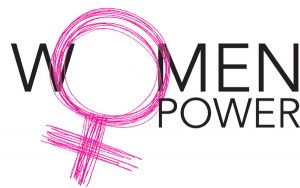The Victorian period experienced many cases of authors and artists thinking about and expressing women’s roles in society differently. One fear pertained to marriage and sexuality. During this time young girls were expected to be looking for a husband, but to make sure they were never suggestive of having a sexual appetite. Women desired marriage because it allowed them to become mothers, not because they could pursue their sexual desires. Once married women were inferior to men, women had no say or choice over their life. In most cases men held all the resources and women were dependent on them. The ideal was that women would be under the control of, and in the service of, a man. However, Christina Rossetti’s poem “No, Thank You, John” is a piece of literature that challenges the relationship and power between men and women of the Victorian era.
The poem shows a conflicting love relationship between a male and female. The male is interested in pursuing their friendship further, however, the speaker does not reciprocate those feelings. Throughout the poem, the speaker repeatedly informs the suitor that she does not love him and refuses to be more than friends with him.
You know I never loved you, John;
No fault of mine made me your toast:
Why will you haunt me with a face as wan
As shows an hour-old ghost? (5-8)
[…]
Let bygones be bygones:
Don’t call me false, who owed not to be true:
I’d rather answer “No” to fifty Johns
Than answer “Yes” to you. (17-20)
[…]
In open treat. Rise above
Quibbles and shuffling off and on:
Here’s friendship for you if you like; but love, –
No, thank you, John. (29-32)
Rossetti gives the female speaker power. The speaker can use her voice to get what she wants. It enables her the power to achieve agency, equality, and self-sufficiency. She no longer must be weak and inferior to men, she has the control. This poem goes against the norms of the Victorian era and challenges the ideal of women’s rights and gender relations.
Rossetti, Christina. “No, Thank You, John.” Goblin Market and Other Poems. Ed. Candace Ward. New York: Dover Publications, Inc, 2004. Print.
It is interesting that you used Christina Rossetti’s poem “No, Thank You, John” because it is one of the few poems on the course list with a female author. This can change the interpretation or dynamic of a poem. While many poems, such as Keat’s “La Belle Dame” feature women chasing after men to gain their interest, Rossetti presents a reverse perspective. This being said, there is still an air of politeness held by the (presumably female) narrator. She ends each verse with a “no thank you”, perhaps demonstrating Rossetti’s social training as a woman of the time. Even when trying to demonstrate a powerful woman, Rossetti still places restrictions on her character’s attitude.